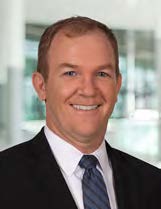Sunshine Laws, Public Meetings and Social Distancing

by Jeff E. Wright, Esquire
by Jeff E. Wright, Esquire
Local governments throughout Florida have been faced with unprecedented challenges brought on by the COVID-19 health crisis. Several Florida jurisdictions have cancelled their regular public meetings. Others have continued to hold these meetings, making adjustments for social distancing and remote participation.
The Naples City Council and Collier County Commission normally hold “regular” meetings twice during the month of April. This year, both cancelled their first meetings in April for the COVID-19 health crisis, but both appear to be moving forward with future “regular” public meetings – Naples on April 15th and Collier County on April 28th. Given the current restrictions on congregating in public spaces, and the long-standing requirement to have a quorum physically present to conduct business, these meetings will be different.
Both jurisdictions are bound by the Governor’s several Executive Orders relating to the health crisis. Notably, Executive Order No. 20-69 suspends requirements for local governing bodies to have a quorum physically present to conduct business, or to meet at a specific public place. This Order allows any and all members to participate remotely, for now, and it encourages local governments to utilize remote communications in conducting their business.
Additionally, Executive Order No. 20-91 states that “Local jurisdictions shall ensure that groups of people greater than ten are not permitted to congregate in any public space.” (emphasis added). This mandate obviously places a severe restriction on Florida’s “open meetings” model, where citizens have traditionally gathered and interacted over the public’s business.
Both of these orders expire 60 days after March 9th (i.e., on or about May 8th), unless further extended by the Governor.
Florida is well-known for its “open government” approach. Florida’s Sunshine Law requires local government meetings to be open to the public, and the public must be given an opportunity to participate.
However, with rules for social distancing, and limits on numbers of people congregating, local governments are adjusting their traditional ways of doing business, by allowing members and the public to “virtually” attend and participate at meetings.
Traditional meetings may resume soon, perhaps even before the Council and Commission take their summer recesses. While this COVID-19 health crisis may lead to changes to allow a greater degree of remote participation, the traditional meeting model is not going away any time soon. While the “virtual meetings” model may work for soliciting citizen input and participation, certain matters such as quasi-judicial land use, code enforcement matters, and controversial community-wide matters, would require further evolution before going fully virtual.
About the Author Jeff E. Wright is a stockholder and chair of the Land Use & Environmental Law Department at Henderson, Franklin, Starnes & Holt, P.A. He is Board Certified in City, County & Local Government Law. He has been deeply involved in growth management and comprehensive planning issues in Florida and currently serves on the Naples Chamber of Commerce Public Policy Committee and is a member of the Urban Land Institute (ULI), the Real Estate Investment Society (REIS), the Collier County Building Industry Association (CBIA), and the Naples Area Board of Realtors (NABOR).




Leave a Reply
Want to join the discussion?Feel free to contribute!